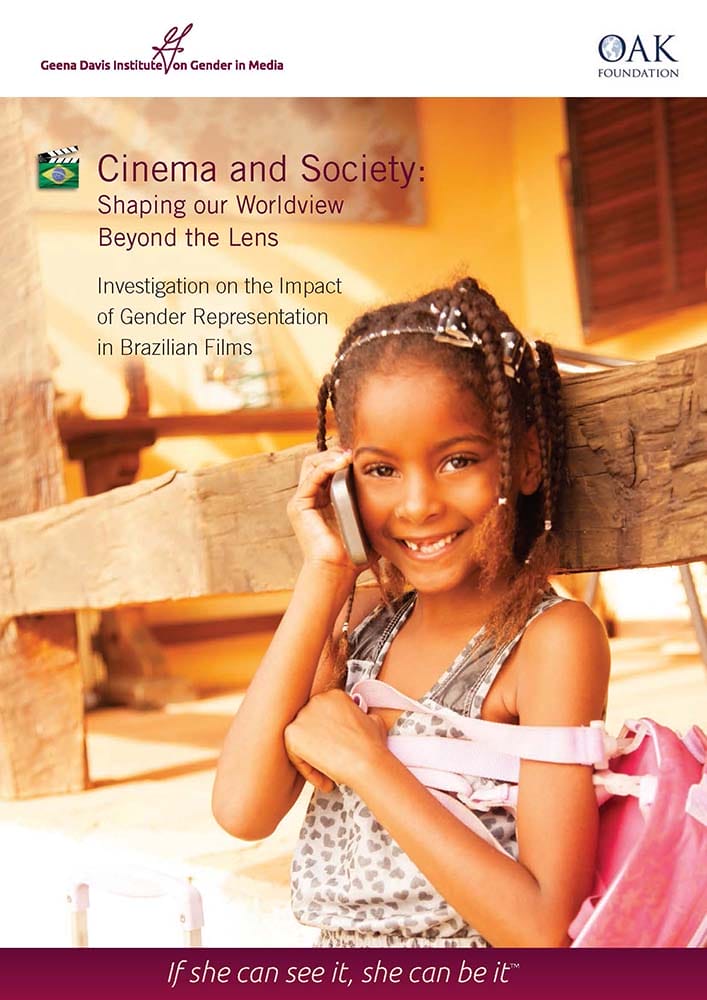Our extensive study, “Cinema and Society: Shaping Our Worldview Beyond the Lens,” dives deep into the cultural impact of Brazilian films, especially concerning gender representation. We explore the crucial role media plays in shaping societal norms and personal identities, assessing public perception and its influence on social change.
The OAK Foundation partnered with the Geena Davis Institute on Gender in Media to answer three questions. First, what do Brazilian people of different backgrounds think about the influence of entertainment media in everyday life? Second, what do Brazilians think of gender and race representations in Brazilian media? Lastly, should entertainment media address pressing social issues? To answer these questions, GDI conducted focus groups which consisted of children, teens, young adults, adults, and parents. Additionally, we conducted a public opinion survey to see whether the major findings of our focus groups were broadly representative.
Key Findings
- Brazilians of all ages report that they watch television together on a regular basis and that TV is often in the background, even if no one is watching. The Internet is the second most popular media source in Brazil, and children have the highest usage rates.
- Respondents with higher levels of education are more likely to agree with the idea that Brazilian TV and movies have much influence on how people think and act.
- When asked about their favorite movie and television characters, girls and women of all ages say they prefer a mix of male and female protagonists whereas boys, male teens, and men unanimously mention male protagonists as their favorite.
- Young focus group participants of both genders agree that Brazilian films and television programs glorify hypermasculinity, and are critical of the narrow, traditional portrayals of male characters.
- When asked whether Brazilian film and television accurately represent the racial diversity of Brazilian society, the vast majority of respondents think that media representations are sufficiently diverse.
Recommendations
- Enhance Female Representation: Increase the presence and depth of female characters in films, ensuring they are shown in diverse roles beyond traditional stereotypes.
- Address Racial Stereotypes: Present more nuanced and positive representations of racial diversity to reflect the true fabric of Brazilian society.
- Focus on Social Issues: Integrate serious social issues into narratives more effectively to foster societal change and reflection.

